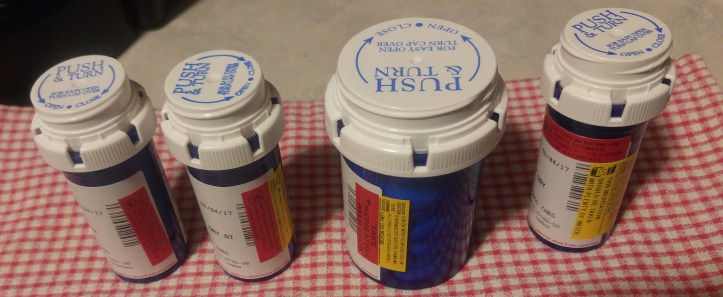Are you afraid to talk to your doctor? Here’s why I will never hesitate again.
- authormargarite
- Aug 4, 2017
- 4 min read
Many people are afraid to ask their medical providers questions. They just follow their medical advice, and never question a thing. I was one of those people once, but no more.
It all started approximately seven years ago. I was diagnosed with a condition that required daily medication. I obediently took all of my expensive medicine, followed the doctor’s advice to the letter, and improved.
The problem arose when I returned to the doctor’s office for a followup appointment. I had achieved all of the goals that he had set for me, and my blood labs were perfect for someone with my condition. I was elated until he said, “We are going to add this injectable to your medication.”
I was shocked. He wasn’t replacing something I already took with the injectable, but adding it. I didn’t need to add any medication. I was achieving success on my current regimen. I realize he has the medical degree, but I’m not stupid. I paid $500.00 for a class on my condition at his insistence. I purchased several books about my issues, treatment, and lifestyle changes that were required. Every piece of information I had indicated that my goals were met, and it could be very dangerous for me if I added the drug he suggested.
That’s when I did something that I had never done before. I questioned my doctor. I asked why he thought I needed the extra medicine. I asked if I was correct in believing that being too low is just as bad as being too high. He agreed that was the case, but still wanted me to add the injectable. He wouldn’t give me a reason other than he said so. I flatly refused.
I stayed with him for a few more months, and he tried to add another medication every time I saw him. He didn’t listen to me when I tried to communicate with him. He just wanted me to take another pill or shot. I finally realized that he wasn’t the right doctor for me, and found someone new.
My new doctor went over my health history, medications, and lab work. He was pleased with the way my labs looked and actually told me that I was doing a good job! He listened to my concerns, questions, and comments. He explained what I needed and why when he added something. He made suggestions to make my life better.
My doctor listened to me when I had problems. He prescribed an asthma pill when I complained of having chronic breathing issues. Another time, I had a persistent cough that just wouldn’t go away. I researched side effects on all of my medicine and discovered one of them may have been the cause. I asked my doctor about it. He replaced that pill with another, which cured my cough.
We sailed along smoothly together for a few years, and then my employer changed insurance companies. My already expensive medication increased to a few hundred dollars per month. I couldn’t afford it. So, I decided to be proactive. I took a printed list of covered medications and their price tiers with me to my next appointment.
My doctor sat down with me and examined my list of pharmaceuticals. He consulted the reference book that he brought to all of my visits. He selected new medications. Most of them were under $15.00 each. He gave me a savings card for one name brand medicine that saved me $40.00 per month. That one conversation with my doctor reduced my monthly pharmacy bill to under $60.00 per month.
I’ve since had to leave that wonderful doctor due to another change in insurance. I’ve been with my current doctor for nearly two years, and she is just as great. She has added and subtracted medicine, and kept both my wallet and me healthy. In fact, I just picked up my medicine for this month and my total was $21.00.

I currently take one name brand medicine, which is a 90 day prescription. My copay for that medicine is $100.00. I checked the company’s website and found a savings card that reduces my cost by $25.00 every three months. I pay $75.00 for that 90 day supply, which makes it $25.00 per month.
When you add the cost of my monthly medications to my 90 day medicine, I’m still averaging only $46.00 per month. Many big pharmaceutical companies offer savings programs to make their products more affordable. It’s certainly worthwhile to check their websites and ask your doctor if there’s any way to reduce the cost of your medication.
I’m not suggesting that you challenge your doctor’s advice. I’m just saying that it never hurts to ask a question if something doesn’t seem quite right or you’re having trouble paying for your medicine. Communication is a very good thing, and your doctor doesn’t know you have a problem, concern, or question if you fail to say something. My second doctor told me that he had no idea I was paying so much for my medicine or he would have changed it immediately.
My current doctor is fabulous, but my body is mine. I make it a point to stay on top of my condition and what each of my medicines is doing to and for me. If something goes awry or stops working, I call her immediately. We are a team when it comes to my health care.
Thank you for reading Ozarks Maven. I hope you enjoyed these seeds of wisdom. If so, please enter your email in the Subscribe box, Like Ozarks Maven on Facebook, or follow me on Twitter @OzarksMaven.



Comments